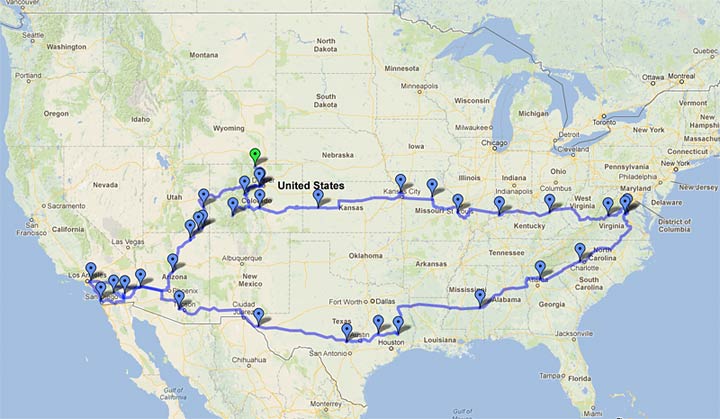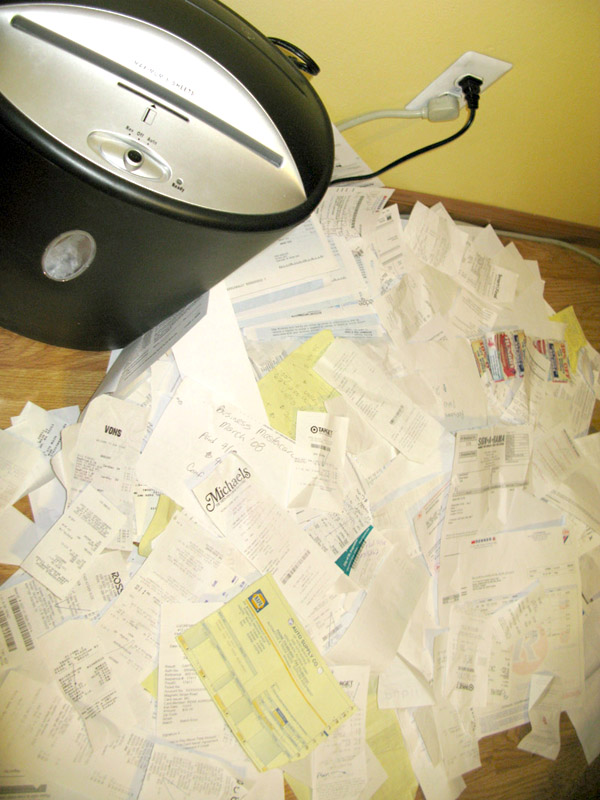Full-time RVers with small businesses take note; tax help doesn’t have to be intimidating. We don’t usually publish guest blog content more than once a month but this next article provided by Angie Picardo, a staff writer for NerdWallet, is too good not to share now. I hope you learn as much from her article as we did. Enjoy!
 Tax time can be stressful and frustrating for many people, but freelancers and other self-employed professionals usually end up enduring an extra headache or two. However, there is a special subset of freelancers with a particularly tricky tax situation: those who don?t have a traditional home base. That is, freelancers who are transient, such as those who live full-time in a recreational vehicle (RV) or on a boat.
Tax time can be stressful and frustrating for many people, but freelancers and other self-employed professionals usually end up enduring an extra headache or two. However, there is a special subset of freelancers with a particularly tricky tax situation: those who don?t have a traditional home base. That is, freelancers who are transient, such as those who live full-time in a recreational vehicle (RV) or on a boat.
Many people dream of breaking free of the confines of an office, hitting the road, and working for themselves, but few people think about the complicated tax situation they?ll end up in when they take the plunge into this alternative lifestyle. Make no mistake: those who commit to nomadic self-employment often love the freedom it brings, but it?s important to keep in mind that, every April, you might be in for a doozy when it?s time to file your taxes.
The good news is that there are steps you can take to both minimize your tax bill and make filing your taxes quite a bit easier. Keep the following tips in mind as you?re clicking away at your keyboard, enjoying the open road:
Establish residency in the right state
If you?re living on an RV full time, the good news is that you have 50 states to choose from when it comes to establishing legal residency, and 9 of those states don?t collect state income tax from residents.
 However, be careful because some tax-free states do charge personal property tax every year, and this can be a hefty bill if you?re an RV owner.
However, be careful because some tax-free states do charge personal property tax every year, and this can be a hefty bill if you?re an RV owner.
Two states that are good choices for full-time RVers are Texas and South Dakota, as neither has a state income tax or a personal property tax assessment. Becoming a resident of one of these states could save you big bucks on your tax bill.
Keep track of everything
When you?re freelancing, it?s very important to keep track of all paperwork related to income and business expenditures, but it?s especially important when you?re out at sea or on the road where important documents could get misplaced easily. Since most of your ?paperwork? will probably be in the form of electronic communications, consider setting up a dedicated, cloud-based storage account (through a site like Dropbox) for all of your tax-related documents. That way, no matter where you are when April rolls around, it?ll be easy to access all your important paperwork.
Research deductions based on your type of transience
There are tons of deductions out there for people who live and work out of their RVs and boats, including, in most cases, the home mortgage interest deduction and the home office deduction. It?s also possible to deduct repairs and upgrades made to your RV or boat, since it?s serving as your workplace. Consider docking or pulling over for a day or so to consult a CPA about your particular type of transience and the deductions you can claim.
Consider filing quarterly taxes
 Many people balk at the idea of filing their taxes more than once per year, but filing your income taxes every three months can take a lot of pressure off of full-time freelancers and save a lot of time compared to filing all at once in April. Think about filing quarterly taxes if the idea of waiting until the end of the year to settle-up with the government stresses you out and will detract from the quality of your travels.
Many people balk at the idea of filing their taxes more than once per year, but filing your income taxes every three months can take a lot of pressure off of full-time freelancers and save a lot of time compared to filing all at once in April. Think about filing quarterly taxes if the idea of waiting until the end of the year to settle-up with the government stresses you out and will detract from the quality of your travels.
Set up a savings account earmarked for your tax bill
With the rise in popularity of online savings accounts, many freelancers have found that creating a dedicated sub-account earmarked for taxes makes the task of finding the cash for paying their tax bill much easier. Putting aside 25-30% of each freelance check into an account separate from your regular checking and savings accounts will provide you with peace of mind when your tab from Uncle Sam arrives. Plus, it?s as easy to do as a few clicks of the mouse, making it a good option for people who are often far away from a brick-and-mortar bank.
Living a transient lifestyle doesn?t have to be a nightmare at tax time if you keep these five tips in mind!
Angie Picardo is a staff writer for NerdWallet. She writes articles that help independent professionals learn about topics ranging from tax advice to college tuition planning.
This is such a taxing issue…